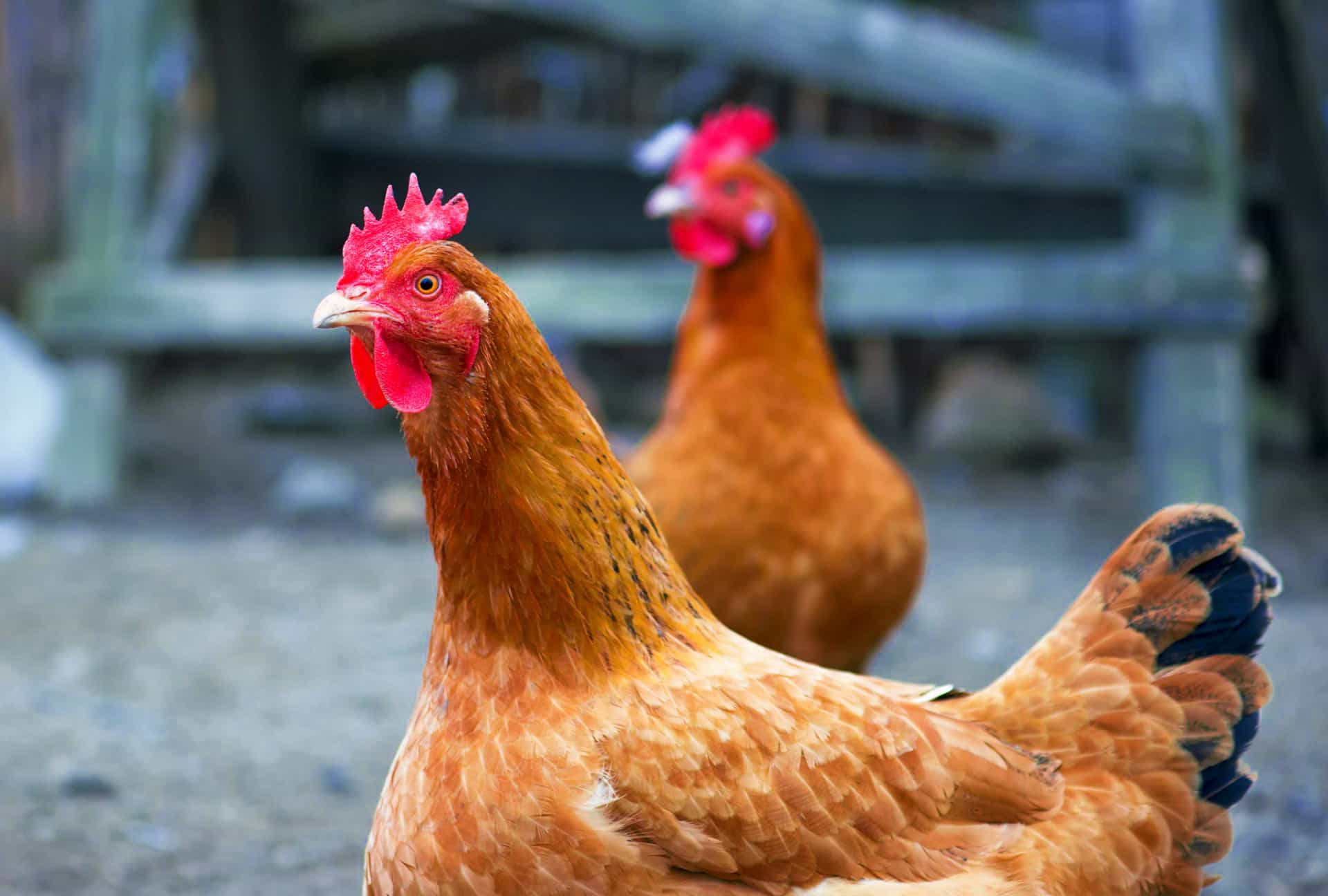Can Chickens See in the Dark? yes, chickens are essentially night-blind! Chickens advanced after the dinosaur age and didn’t burn through a huge number of years as nighttime creatures like numerous different species, their night vision is poor because of their low light responsiveness never having been created in the retina.
Discover if chickens can see in the dark and how their vision adapts to low-light conditions in this insightful article.
Presentation
Have you at any point considered how chickens see the world? Their vision is entrancing and special, permitting them to see things we can’t. Notwithstanding, there’s a typical inquiry that many individuals pose: Can Chickens See in the Dark? Understanding how chickens view their current circumstance can assist us with better focusing on them, guaranteeing they carry on with cheerful and sound lives. We should jump into the universe of chicken vision and find what works everything out such that is unique.
Overview of the Topic
Chickens have a visual framework that is not the same as people. They can see a more extensive scope of varieties, have a third eyelid for security, and their eyes make up an enormous piece of their head mass. Be that as it may, Can Chickens See in the Dark? This question is critical because it influences how we deal with their everyday environments, particularly during evening time.
Knowing whether chickens live in obscurity can assist us with establishing a protected and agreeable climate for them, lessening their pressure and further developing their prosperity.
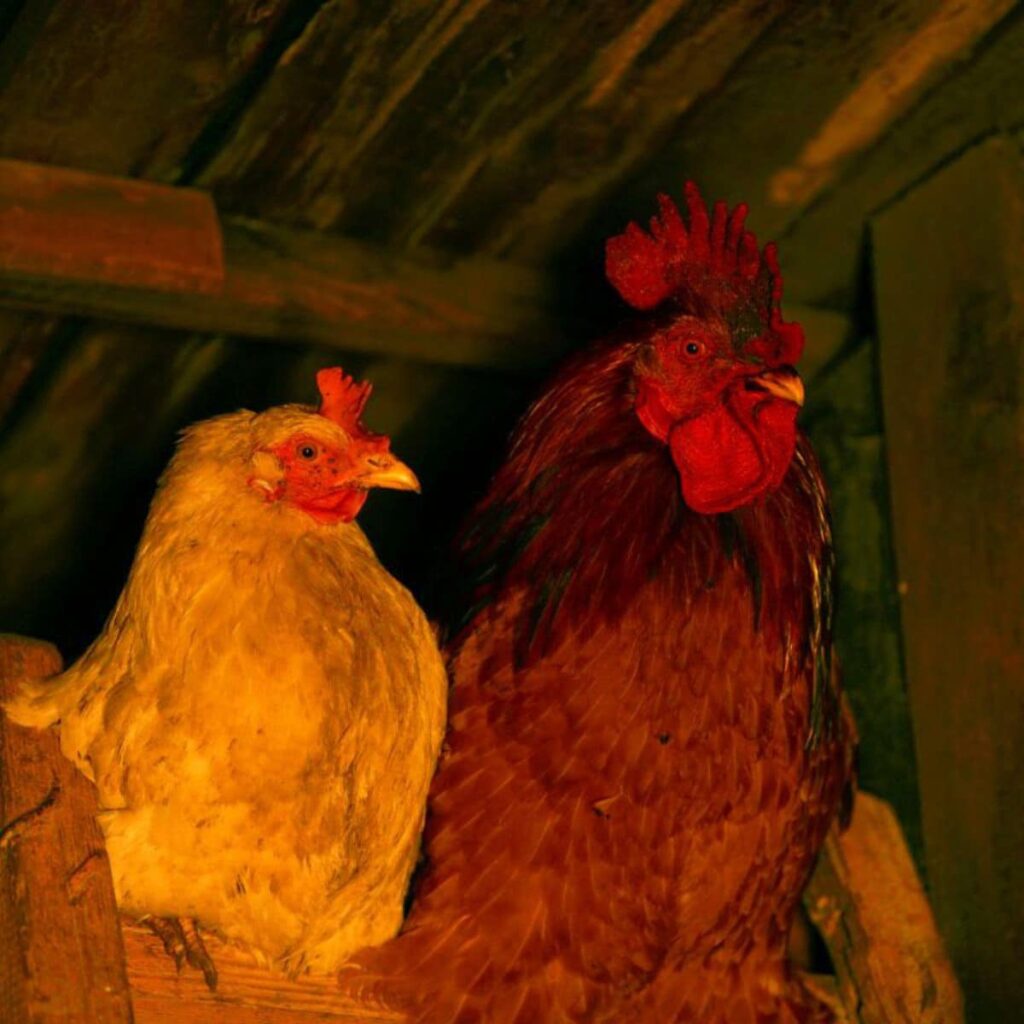
Importance of Understanding Chicken Vision
Understanding how chickens see the world, particularly in chickens see in the dark, is significant because of multiple factors. To start with, it assists us with making better living spaces for them. Assuming we realize that chickens find themselves in obscurity ineffectively, we can guarantee their coops have legitimate lighting to encourage them.
Second, it illuminates how we handle them during evening time. Assuming chickens are found in obscurity, it could influence how we approach them when it’s dim. Ultimately, understanding their vision can work on their general consideration, as it permits us to give a climate that addresses their issues. Knowing whether chickens live in obscurity can have a huge effect on the way we care for them.
Chickens Can See More Colors Than Us
Chickens have a mind-blowing capacity to see more varieties than people. They can see bright light, which is undetectable to us. This capacity assists them with tracking down food and exploring their current circumstance successfully.
However, might chickens at any point be found in obscurity? Notwithstanding their high level variety vision, their capacity to find in low-light circumstances is restricted. This implies that even though chickens see a larger number of varieties than us, they battle when the lights go out. Guaranteeing they have sufficient light in their coop is fundamental for their solace and security.
Chickens Have a Third Eyelid!
One enrapturing component of chicken eyes is the third eyelid, generally called the nictitating layer. This straightforward eyelid moves sideways across the eye, safeguarding it from residue and trash while keeping it sodden. Yet, Can Chickens See in the Dark? The nictitating layer doesn’t further develop their night vision.
It’s perfect for safeguarding their eyes during the day, yet chickens find in obscurity similarly as inadequately as without it. Understanding this assists us with understanding the significance of giving legitimate lighting to them around evening time.
Chickens Do Not See Well in the Dark
In the evening, chickens don’t see well. They have fewer bar cells in their eyes, which are essential for finding in low light. All in all, Can Chickens See in the Dark? The response is no, not well overall.
Their unfortunate night vision implies they depend on memory and different faculties to explore when it’s dim. Realizing that chickens find in obscurity inadequately, we ought to guarantee their living spaces are sufficiently bright during the night and night to keep them protected and agreeable.
Chicks Have Astonishing Visual Perception from Birth
From the second they hatch, chicks have a noteworthy vision. They can see and perceive their environmental factors very quickly, which assists them with finding food and remaining near their mom.
However, Can Chickens See in the Dark? Indeed, even with their astounding vision, chicks battle to find in low-light circumstances. Very much like grown-up chickens, they need sufficient lighting to have a solid sense of safety. Understanding that chickens find in obscurity inadequately from birth features the requirement for appropriate lighting in their agonizing region.
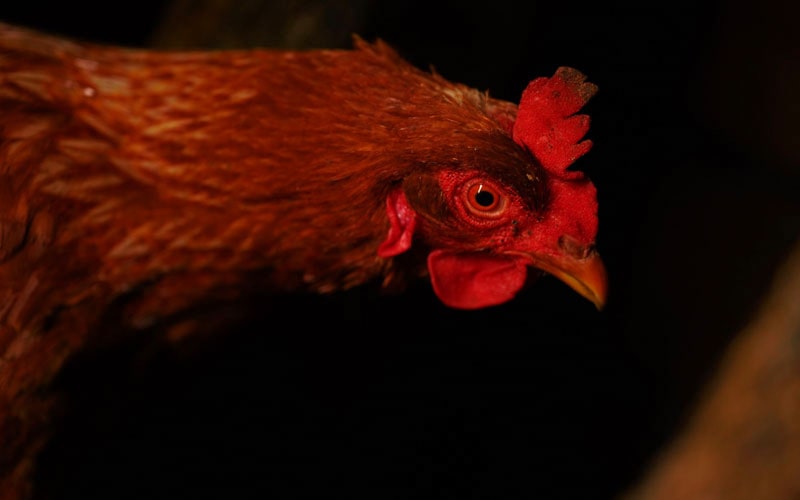
They Can Utilize Each Eye Freely
Chickens have the extraordinary capacity to autonomously utilize each eye. This implies they can zero in on two distinct things simultaneously, which is valuable for spotting hunters while looking for food. Yet, Can Chickens See in the Dark? Sadly, their autonomous eye use doesn’t help much when it’s dim.
Whether they utilize one eye or both, chickens find in obscurity ineffectively. Guaranteeing their current circumstance is sufficiently bright around evening time can assist them with feeling more calm.
Chickens Seldom Move Their Eyeballs
Dissimilar to people, chickens seldom move their eyeballs. All things considered, they move their heads to glance around. This conduct assists them with remaining ready and mindful of their environmental elements.
However, Can Chickens See in the Dark? Their fixed eyeballs don’t further develop their night vision. At the point when the lights go out, chickens find in obscurity similarly as ineffectively as though they could move their eyes. This makes it considerably more essential to give great lighting in their living region.
Their Eyes Have a Twofold Cone Design
Chicken eyes contain a twofold cone structure, which assists them with distinguishing development and seeing tones distinctively. This one-of-a-kind component is great for daytime exercises. However, Can Chickens See in the Dark? Despite the upsides of their twofold cone vision, it doesn’t assist them with finding in low light.
Chickens find in obscurity similarly as inadequately as different creatures without particular night vision. Knowing this, we can ensure their current circumstance is sufficiently bright to help their vision.
Chickens Can Detect Light Through Their Pineal Organ
Chickens have a pineal organ in their frontal cortexes that helps them sense light and control their everyday rhythms. This organ plays an essential part in its approach to acting and conceptive cycles.
Be that as it may, Can Chickens See in the Dark? While the pineal organ assists them with detecting light changes, it doesn’t work on their capacity to find in obscurity. Chickens find in obscurity inadequately, making it vital to guarantee they have sufficient lighting to help their regular rhythms and solace.
Chicken Eyes Make Up 10% of Their Head Mass
A huge part of a chicken’s head is comprised of their eyes, showing how significant vision is to them. Their enormous eyes furnish them with great daytime vision. In any case, Can Chickens See in the Dark? Regardless of their size, chicken eyes are not appropriate for low-light circumstances. Chickens find in obscurity
inadequately, accentuating the requirement for appropriate lighting in their current circumstance to keep them protected and agreeable around evening time.
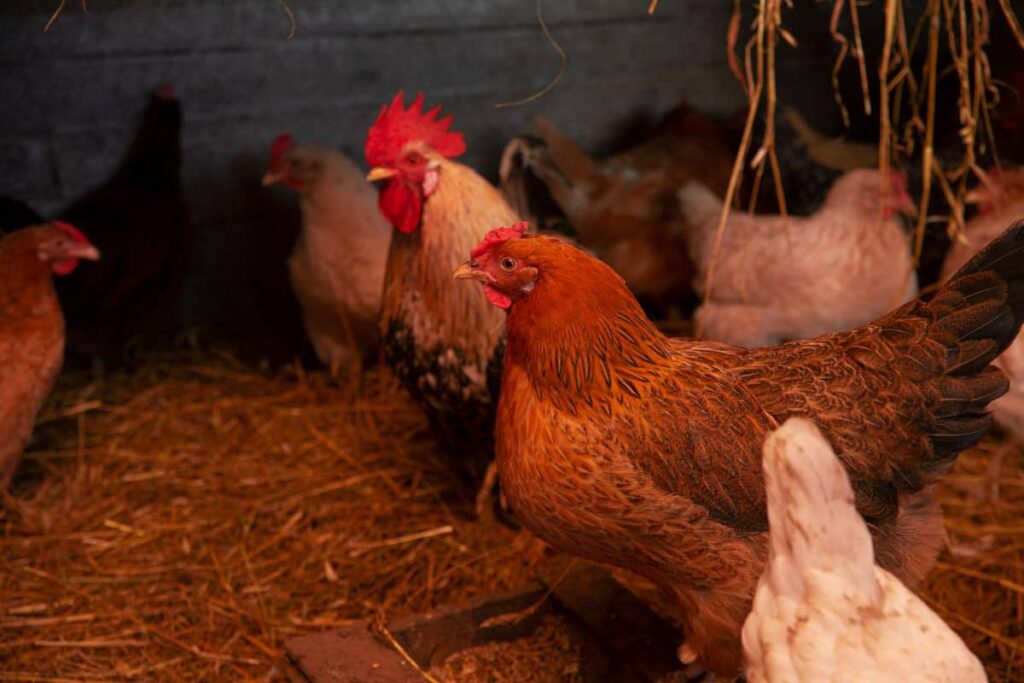
Life Systems of Chicken Eyes
Chickens have captivating eyes that are fundamental for their endurance and day-to-day exercises. Understanding the life structures of chicken eyes can furnish bits of knowledge into how they collaborate with their current circumstance.
Can Chickens See in the Dark? This question frequently emerges while examining chicken vision, and investigating the design of their eyes can assist with responding to it. How about we dive into the subtleties and see what makes chicken eyes so exceptional?
Construction of a Chicken’s Eye
The construction of a chicken’s eye is very complicated and contrasts essentially with natural eyes. A chicken’s eye contains an enormous, practically circular focal point, which assists them with zeroing in rapidly on objects. The retina, situated at the rear of the eye, is loaded with cone cells that permit chickens to see energetic varieties.
Be that as it may, about whether chickens are found in obscurity, they have constraints. Chickens have fewer bar cells, which are fundamental for low-light vision, meaning chickens live in obscurity ineffectively. Their eyes likewise incorporate a third eyelid, called the nictitating film, which safeguards and clean their eyes.
In spite of these high level elements, this has yet to be addressed: might chickens at any point find in obscurity? The response is no, they battle in low-light circumstances, making it essential to comprehend their vision needs.
Contrasts Between Chicken and Natural Eyes
The distinctions between chicken and natural eyes are huge and entrancing. One significant contrast is the quantity of cone cells in the retina. Chickens have four sorts of cone cells, including one that identifies bright light, permitting them to see a more extensive range of varieties than people. Yet, might chickens at any point find in obscurity? Dissimilar to people, chickens have fewer bar cells, which are urgent for finding in low light.
This implies chickens find in obscurity significantly less successfully than people. Another distinction is the presence of the nictitating layer in chickens, which people need. This third eyelid gives additional security however doesn’t further develop their night vision. Taking into account these distinctions, obviously chickens find in obscurity with extraordinary trouble, featuring the requirement for sufficiently bright conditions to guarantee their wellbeing and solace.
What Vision Means for Chicken’s Way of Behaving
Vision assumes a basic part in chicken’s way of behaving, impacting how they cooperate with their current circumstance and one another. Chickens depend vigorously on their sight to scrounge, keep away from hunters, and speak with group individuals.
Be that as it may, Can Chickens See in the Dark? Their restricted night vision implies they are not so much dynamic but rather more weak in low-light circumstances. Chickens find in obscurity ineffectively, which is the reason they perch at nightfall and stay latent until daybreak. Understanding that chickens find in obscurity with trouble assists us with giving better consideration, guaranteeing their coops are secure and sufficiently bright to forestall pressure and disarray.
Significance of Lighting for Chickens
Appropriate lighting is urgent for keeping up with the well-being and prosperity of chickens. Since chickens find in obscurity inadequately, giving satisfactory lighting in their living spaces is fundamental. Great lighting assists them with exploring, track down food, and have a real sense of security.
Can Chickens See in the Dark? Not great, which is the reason fake lighting in coops can broaden their dynamic hours and work on their general personal satisfaction. By guaranteeing that chickens find in obscurity with however much help as could be expected, we can upgrade their current circumstance, making it more helpful for their normal ways of behaving and decreasing pressure.
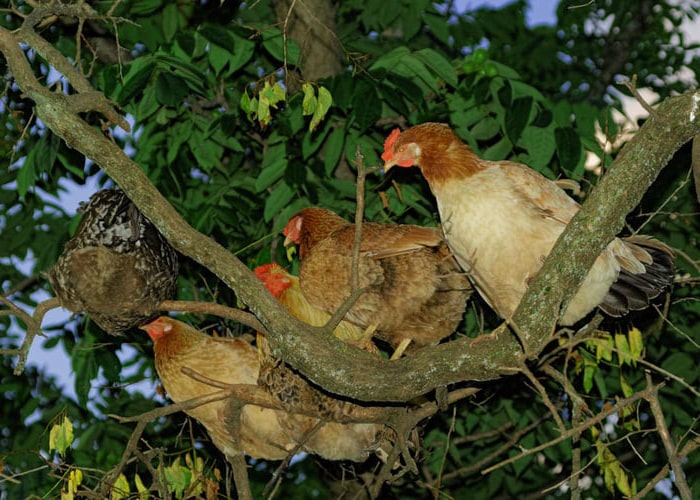
Adjusting to Low-Light Conditions
Chickens can adjust to low-light conditions, however, this variation is restricted. Can Chickens See in the Dark? Certainly not. Their restricted pole cells mean chickens live in obscurity inadequately, making them more reliant upon light for their exercises.
They could turn out to be more careful and less dynamic in faint circumstances, depending on different faculties like hearing to identify dangers. Realizing that chickens find in obscurity with trouble, it’s fundamental to furnish them with a sufficiently bright climate to assist them with having a solid sense of safety and agreement.
Upgrading Chicken Coops for Better Vision
To help chickens’ vision needs, improving their coops with appropriate lighting is fundamental. Chickens find in obscurity with extraordinary trouble, so giving light sources that copy regular sunlight can work on their day to day environments.
Introducing windows, utilizing brilliant, energy-productive bulbs, and guaranteeing a predictable light timetable can help. While thinking about that chickens find in obscurity ineffectively, these improvements can have a tremendous effect in their regular routines. By zeroing in on their lighting needs, we guarantee they stay solid, dynamic, and calm.
Understanding the life structures of chicken eyes and what it means for their vision is urgent for their consideration. Can Chickens See in the Dark? The response is clear: they find in obscurity ineffectively. This information assists us with establishing better conditions for them, guaranteeing they have the light they need to flourish. By valuing the special highlights of their eyes and the difficulties they face in low-light circumstances, we can give the most ideal consideration to our padded companions.
Vision Capacities of Chickens
Chickens have novel vision capacities that put them aside from numerous different creatures. Understanding how chickens see the world can assist us with really focusing on them better. One normal inquiry is: Can Chickens See in the Dark? This blog entry investigates their scope of vision, contrasting their daytime and evening vision, and how their vision piles facing different creatures. How about we dig into the interesting universe of chicken vision.
Scope of Vision (Variety Range, Sharpness)
Chickens have a wonderful scope of vision. They can see a more extensive range of varieties than people, including bright light. This implies they see the world in lively tints we couldn’t in fact envision. Their acute sight permits them to recognize minuscule subtleties and developments, significant for scrounging and keeping away from hunters.
Be that as it may, Can Chickens See in the Dark? Notwithstanding their phenomenal variety vision, chickens find in obscurity inadequately. Their eyes are not exceptional for low-light circumstances, making evening time a test for them. Realizing that chickens find in obscurity inadequately assists us with understanding the significance of appropriate lighting in their current circumstance to keep them protected and agreeable.
Daytime Vision vs. Nighttime Vision
During the day, chickens have uncommon vision. They can see tones clearly and identify even the smallest developments, which assists them with finding food and remaining cautious of risk. In any case, Can Chickens See in the Dark? Sadly, chickens find in obscurity with much trouble. Their eyes have less bar cells, which are essential for finding low light, making their evening vision very poor.
Thus, chickens are not so much dynamic but rather more defenseless around evening time. Understanding that chickens find in obscurity inadequately features the requirement for giving satisfactory lighting in their coops to guarantee their security and prosperity.
Examination with Different Creatures
While contrasting chicken vision with different creatures, a few distinctions stick out. Chickens have preferred variety vision over numerous vertebrates, because of their capacity to see bright light. Be that as it may, about low-light vision, they linger behind.
Can Chickens See in the Dark? The response is no. Chickens found in obscurity ineffectively contrasted with these creatures, which have more bar cells and variations for night vision. This differentiation underlines the impediments of chicken vision in obscurity and the significance of light for their day-to-day exercises. While chickens flourish in brilliant circumstances, their unfortunate night vision expects us to guarantee they have a sufficiently bright climate to securely explore.
Adjusting to Their Current circumstance
Chickens have fostered a few ways of behaving to adjust to their visual capacities. During the day, they are dynamic, searching for food and cooperating with their herd. Yet, Can Chickens See in the Dark? No, chickens find in obscurity with extraordinary trouble, so they will more often than not perch stay still around evening time to keep away from hunters.
Understanding that chickens find in obscurity inadequately assists us with establishing conditions that take special care of their necessities. Giving counterfeit lighting during the night can expand their dynamic hours and diminish pressure. By knowing how chickens find in obscurity and how they adjust, we can work on their everyday environments and general prosperity.
Upgrading Chicken Coops for Better Vision
Considering that chickens live in obscurity ineffectively, upgrading their coops with appropriate lighting is fundamental. Great lighting can impersonate normal sunlight, assisting chickens with feeling more good and secure.
Can Chickens See in the Dark? While they actually won’t see as well as in sunlight, sufficient lighting can assist them with exploring their space better and decrease evening pressure. Utilizing energy-productive bulbs and guaranteeing a reliable light timetable can essentially help chickens. By zeroing in on their lighting needs, we guarantee that chickens find in obscurity all the more successfully and carry on with better, more joyful existences.
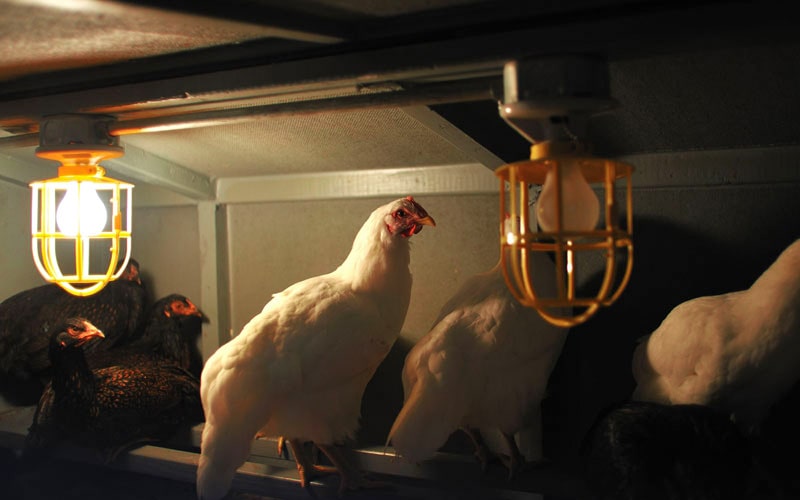
Reasonable Tips for Chicken Proprietors
For chicken proprietors, understanding that chickens find in obscurity ineffectively is pivotal. Here are a few reasonable tips: Guarantee coops have more than adequate lighting during the night hours, use windows or clear boards to permit normal light, and introduce safe, energy-proficient bulbs.
Can Chickens See in the Dark? They will in any case battle, yet the additional light will assist them with feeling more calm. Routinely take a look at the lighting arrangement to guarantee it addresses their issues, and think about utilizing clocks to keep a steady light timetable. By making these strides, you can guarantee that chickens find obscurity with less trouble and partake in superior personal satisfaction.
Chickens have novel vision capacities that are amazing yet restricted in obscurity. Can Chickens See in the Dark? The response is no, they battle with low-light circumstances.
By understanding their vision range, the distinction between their daytime and evening time vision, and how they contrast with different creatures, we can give better consideration to them. Guaranteeing their current circumstance is sufficiently bright, particularly around evening time, can assist chickens with finding in obscurity all the more easily and living more joyful, better lives.
Can Chickens See in the Dark?
Chickens have a captivating approach to seeing the world, yet their vision has its cutoff points, particularly around evening time. A typical inquiry is: Can Chickens See in the Dark? Understanding how chickens see their environmental elements when the lights go out is significant for anybody who focuses on these birds.
Can Chickens See in the Dark, the constraints of their vision in low light, and a few fantasies and misguided judgments about their evening time sight.
Explanation of Night Vision in Chickens
Can Chickens See in the Dark? The straightforward response is that chickens have extremely unfortunate night vision. Their eyes are intended for sunshine, with countless cone cells that assist them with seeing tones distinctively during the day.
In any case, they have fewer bar cells, which are fundamental for finding in low light. This implies that when the sun sets, Can Chickens See in the Dark. Their vision becomes hazy and restricted, making it challenging for them to explore their environmental elements. Understanding that chickens find in obscurity inadequately assists us with valuing the requirement for legitimate lighting in their living spaces to keep them protected and agreeable.
Cutoff points of Chicken Vision in Low Light
Chickens find in obscurity with critical impediments. Dissimilar to nighttime creatures, Can Chickens See in the Dark. Their eyes come up short on important pole cells to see well in obscurity, and that implies chickens find in obscurity inadequately.
This unfortunate night vision makes them defenseless against hunters and different risks when it’s dim. They depend vigorously on memory and their different faculties to move around in low light. Realizing that chickens find in obscurity with trouble, it’s critical to guarantee their coops are secure and give light to assist them with having a solid sense of reassurance around evening time. Appropriate lighting can lessen their pressure and further develop their general prosperity.
Fantasies and Confusions
There are a few fantasies and confusions about Can Chickens See in the Dark. Certain individuals accept that chickens can see entirely fine around evening time, yet this isn’t correct. In actuality, chickens are found in obscurity ineffectively.
Can Chickens See in the Dark? While their vision is fundamentally impeded, they are not completely visually impaired. They can in any case detect some light and development, however, their capacity to see subtleties is enormously decreased. Understanding that chickens find themselves in obscurity with extraordinary trouble dissipates these fantasies and features the significance of giving legitimate lighting to their security.
Functional Tips for Chicken Proprietors
For the people who care for chickens, it’s critical to comprehend that chickens are found in obscurity inadequately. To help them, guarantee their coops have sufficient lighting during the night and night. can Chickens See in the Dark? While they actually won’t see as well as in sunshine, additional light can assist them with having a real sense of safety.
Consider utilizing clocks to keep a reliable light timetable, which can assist with controlling their regular rhythms. Furthermore, ensure their coop is no problem at all from hunters, as chickens live in obscurity ineffectively and are more powerless around evening time. These means can have a massive effect on their solace and well-being.
Improving Chicken Coops for Evening
Considering that chickens find in obscurity with trouble, improving their coops with legitimate lighting is fundamental. Introducing energy-effective bulbs and guaranteeing there are no dim corners can assist chickens with exploring their space better.
Can Chickens See in the Dark if the coop is sufficiently bright? They will, in any case, have restricted vision, however, satisfactory lighting can work on their capacity to move around and lessen evening time pressure.
It’s additionally vital to guarantee that the lighting doesn’t upset their normal rest designs. By understanding how chickens find in obscurity and giving them a sufficiently bright climate, we can make a more secure and more agreeable space for them.
Chickens have special vision capacities, yet their capacity to find in obscurity is extremely restricted. Can Chickens See in the Dark? No, they battle essentially in low-light circumstances. By understanding the constraints of their night vision and scattering normal fantasies, we can more readily focus on these captivating birds.
Giving appropriate lighting and guaranteeing their current circumstance is secure can assist chickens with finding in obscurity with less trouble, prompting more joyful and better lives.
Do chickens need light at night?
Adding a light to your chicken coop is a straightforward answer for dull evenings. In any case, similar to people, 24-hours of light a day isn’t good for your hens. Setting the light on a clock guarantees your chickens get a decent night’s rest and you awaken to a warm crate of eggs in the chicken coop.
What does a chicken vision look like?
Chickens are tetrachromatic. They have 4 kinds of cones that let them see red, blue, and green light, as well as bright light. In this manner, they see a lot a greater number of varieties and shades than we do. Chickens have an extra twofold cone structure that assists them with following development.
Do chickens like to be in the dark?
Chickens don’t see well in that frame of mind by any means and you don’t need your light turning off into the evening out of nowhere and leaving hens abandoned and perplexed when the light goes off rather than agreeable on their perches.
Conclusion
Chickens have one-of-a-kind vision capacities, yet their capacity to find in obscurity is exceptionally restricted. Can chickens see in the dark? No, they battle fundamentally in low-light circumstances.
By understanding the constraints of their night vision and dispersing normal fantasies, we can more readily focus on these captivating birds. Giving appropriate lighting and guaranteeing their current circumstance is secure can assist chickens with finding in obscurity with less trouble, prompting more joyful and better lives.
Read More
“Fancy Chickens: A Guide to Exotic Breeds and Coop Essentials”

